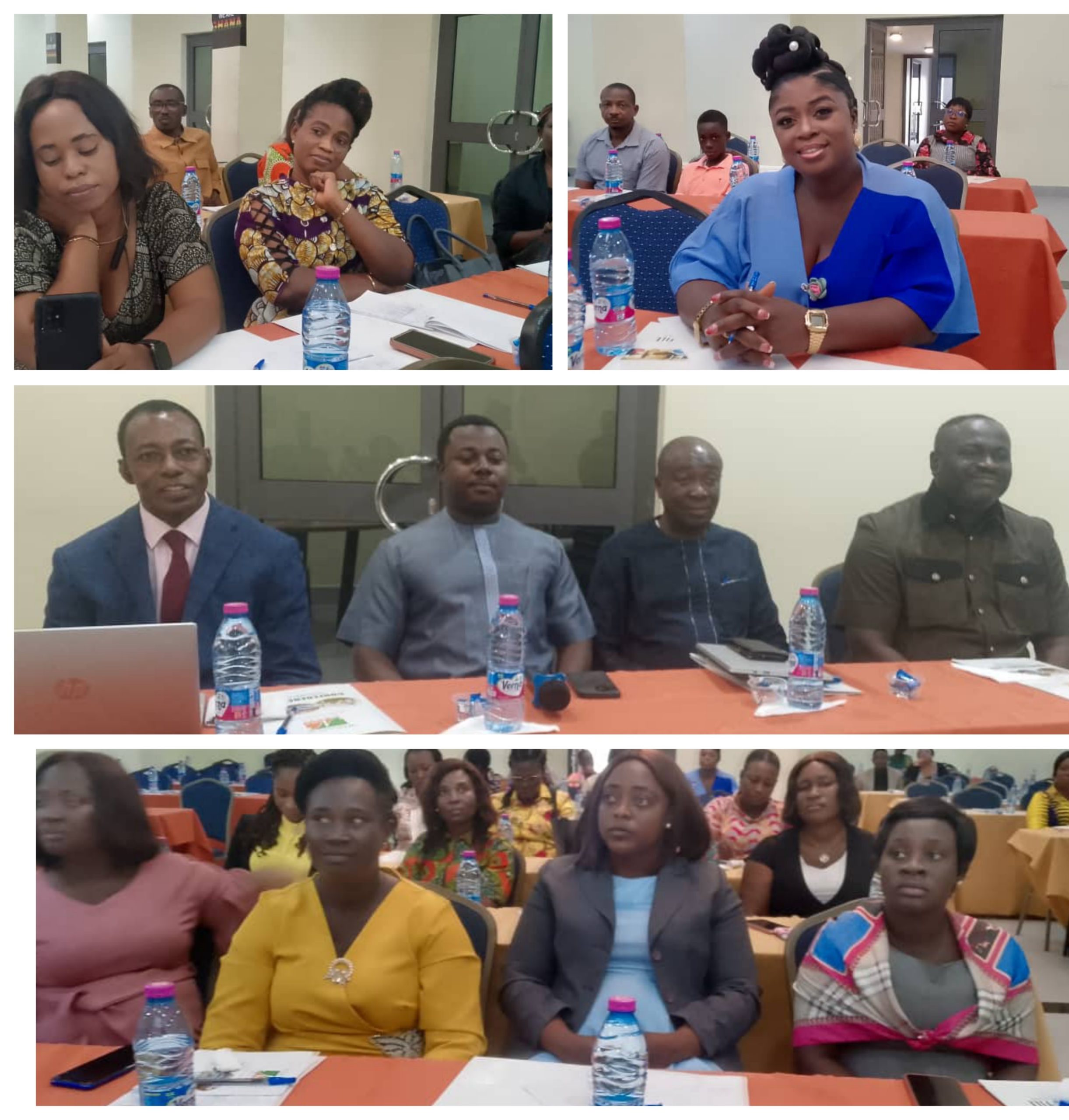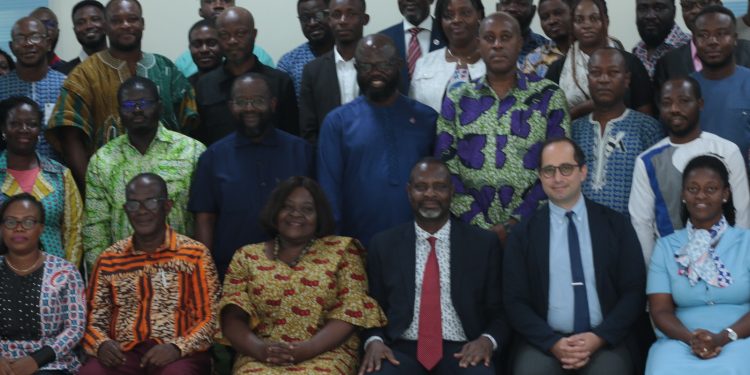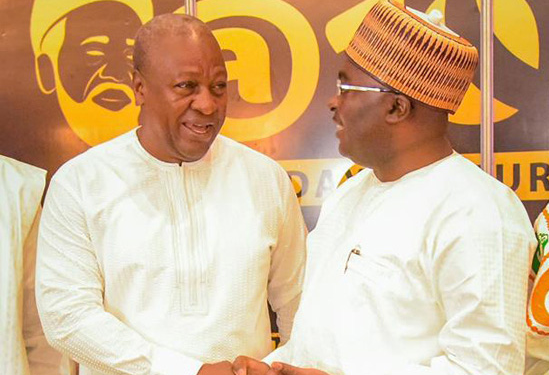Ministry of Education, Ghana Education Service, UNICEF, and Environmental Protection Agency Present Tashkent Declaration and Early Childhood Education Policy Commitment

 The Ministry of Education, in collaboration with the Ghana Education Service (GES), UNICEF, and the Environmental Protection Agency (EPA), has launched the Tashkent Declaration and Early Childhood Education Policy Commitment at an official event held in Fumesua NODA in Kumasi of the Ashanti Region . The theme for the event, “Climate Change and the Child in the Family”, underscores the urgent need to address the growing impacts of climate change on children and their families while promoting early childhood education as a crucial factor in building resilience.
The Ministry of Education, in collaboration with the Ghana Education Service (GES), UNICEF, and the Environmental Protection Agency (EPA), has launched the Tashkent Declaration and Early Childhood Education Policy Commitment at an official event held in Fumesua NODA in Kumasi of the Ashanti Region . The theme for the event, “Climate Change and the Child in the Family”, underscores the urgent need to address the growing impacts of climate change on children and their families while promoting early childhood education as a crucial factor in building resilience.
The launch attracted key stakeholders in the education, environmental, and child rights sectors, including policymakers, international development partners, educators, and environmental advocates. The Deputy Minister of Education, Hon. John Ntim Fordjour, and the Acting Director of the EPA, Dr. Emmanuel Obeng Takyi, delivered important speeches on the occasion, both highlighting the vital role early childhood education plays in addressing the challenges of climate change.

Hon. John Ntim Fordjour, in his keynote address, reaffirmed the Ministry of Education’s commitment to promoting quality early childhood education, especially in the context of global climate challenges. He emphasized that the government is working closely with relevant stakeholders to ensure that Ghana’s youngest citizens are equipped with the knowledge, skills, and environment needed to overcome the adverse effects of climate change.

“The impact of climate change on children is undeniable, from health challenges to disruptions in education. It is our duty to ensure that the next generation is not only educated but prepared to face these challenges head-on. The Tashkent Declaration offers us a blueprint to protect the future of our children by making early childhood education a top priority, even as we tackle environmental issues,” Hon. Fordjour stated.

He further explained that early childhood is a critical stage in a child’s development, and climate-related factors such as flooding, drought, and other environmental challenges disrupt the physical and cognitive growth of children. He reiterated the government’s commitment to safeguarding children through policies that incorporate climate education and environmental sustainability from the earliest stages of learning.

The Tashkent Declaration, which was adopted during the World Conference on Early Childhood Care and Education, calls for global efforts to ensure that every child has access to quality early childhood education. Ghana’s endorsement of this declaration reinforces the country’s dedication to promoting inclusive and equitable early childhood education, with special attention to children in vulnerable communities.
The Early Childhood Education Policy, also presented at the event, sets out a national framework for delivering high-quality early childhood education in Ghana. The policy emphasizes the need for environmentally sustainable education practices and aims to integrate climate change education into the curriculum. By focusing on holistic child development, the policy ensures that children receive both the academic foundation and the environmental awareness needed for future resilience.

Speaking on behalf of the Environmental Protection Agency (EPA), Dr. Emmanuel Obeng Takyi, Acting Director, stressed the importance of collaboration between education and environmental institutions in fostering climate resilience from an early age. He underscored that climate change is not only an environmental issue but also a developmental one, with children being among the most vulnerable groups.
“Children are on the front lines of climate change. As we see increased floods, droughts, and pollution, the negative impacts on health, nutrition, and education are more pronounced among our youngest population. The EPA is committed to working closely with the Ministry of Education to ensure that environmental education is mainstreamed into early childhood programs, as this will play a key role in shaping a generation that is environmentally conscious and capable of tackling the challenges ahead,” Dr. Takyi noted.

He further highlighted the EPA’s ongoing initiatives aimed at raising environmental awareness and promoting sustainable practices in schools across the country. Dr. Takyi encouraged parents, teachers, and communities to actively engage in promoting environmental stewardship, as this would help mitigate the long-term impacts of climate change on families and communities.
The event concluded with a call for greater collaboration between government agencies, non-governmental organizations, and the private sector to ensure the successful implementation of the Early Childhood Education Policy and climate change initiatives. Hon. Fordjour and Dr. Takyi both emphasized the importance of collective action in creating a better future for Ghanaian children.
“The challenges of climate change cannot be tackled by one sector alone. It requires collective effort from all—government, parents, educators, environmentalists, and the international community. Together, we can ensure that the future generation is equipped with the knowledge and tools needed to build a more sustainable and climate-resilient world,” Hon. Fordjour concluded.

The launch of the Tashkent Declaration and Early Childhood Education Policy Commitment signals Ghana’s forward-thinking approach to ensuring that children are prepared for a future where environmental challenges are part of everyday life. With the support of organizations like UNICEF and the strategic input of the EPA, the Ministry of Education is set to create a comprehensive system that integrates climate awareness into the early years of learning.
By Samuel Ofori Boateng (Wontumi multimedia





